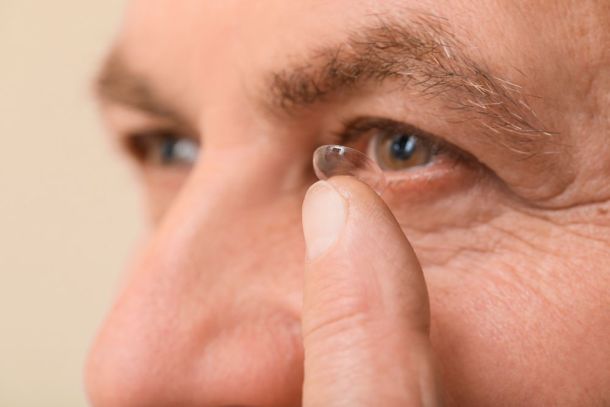HOW DIABETES IMPACTS LONG-TERM EYE HEALTH
Diabetes can damage the eyes over time, causing vision loss or blindness. Diabetes is a risk factor for developing eye diseases such as diabetic retinopathy, cataracts, glaucoma, and macular edema. Scheduling regular eye exams and managing your diabetes can help protect your eyesight and eye health. Early diagnosis and treatment can prevent the worsening of the conditions.
DIABETIC RETINOPATHY
Diabetic retinopathy is the leading cause of blindness among adults with diabetes. The condition occurs when high blood sugar causes damage to the retina’s blood vessels. The vessels swell and leak, resulting in blurry vision or halting blood flow.
In some cases, new abnormal blood vessels grow, causing further vision problems. Failing to treat the condition early can lead to blindness. Controlling blood sugar levels can reduce the risk of the disease.
DIABETES AND CATARACTS
The natural eye lens is clear, allowing the eye to focus well on images. When the lens becomes cloudy, it signifies the development of a cataract. Cataracts affect the vision, with the individual feeling like
looking through a foggy or smudged window.
Anyone can develop cataracts, but people with diabetes have a higher risk of getting them earlier, and they worsen faster. Symptoms of cataracts include blurry vision and increased glare.
DIABETES AND GLAUCOMA
Having diabetes can increase the risk of getting glaucoma. The buildup of pressure in the eye affects the drainage of fluid, which damages nerves and blood vessels, causing vision changes. Open-angle glaucoma is the most common form of the disease.
Medications can help lower eye pressure and increase fluid drainage. An eye exam can help detect the signs of glaucoma in the early stages. Managing your diabetes will help reduce the risk of developing glaucoma.
DIABETES AND BLURRY VISION
If you have diabetes, you should not rush to get a new eyeglass prescription when you experience blurry vision. High blood sugar can cause blurry vision as the eye lens swells. Getting your blood sugar to the desired level can correct the problem.
It can take up to three months for your vision to return to normal. Contact your eye doctor, as blurry vision could also be a symptom of a serious eye health problem.
SUDDEN VISION CHANGES
It is essential to contact your eye doctor immediately if you notice vision changes. Signs that can signify an emergency include:
- Blurry vision
- Spots in the vision
- Blind or dark spots
- Flashes of light
- Distortions
- Difficulty doing detailed work
Prompt action can help save your vision. Pregnant women need an eye exam to avoid possible issues as the body changes. Regular comprehensive eye exams are the best way to prevent long-term eye health complications associated with diabetes.
People with diabetes require more frequent eye exams than adults in good health. Exams allow doctors to find eye issues early when they are easier to treat. Treatment for diabetes-related conditions will depend on the specific disease or eye condition.
For more on how diabetes impacts long-term eye health, visit Eye Health Consultants at our Spring, Texas, office. Call (281) 419-3355 to schedule your eye appointment today.

It is with great pleasure that we welcome you to our specialty eye care home. Eye Health Consultants provides patients with premium eye care and management of eye conditions such as Glaucoma, Anterior Segment Eye Disease, Pink Eye Treatment, Dry Eye Syndrome, Macular Degeneration, and Non-Surgical Vision Correction.








